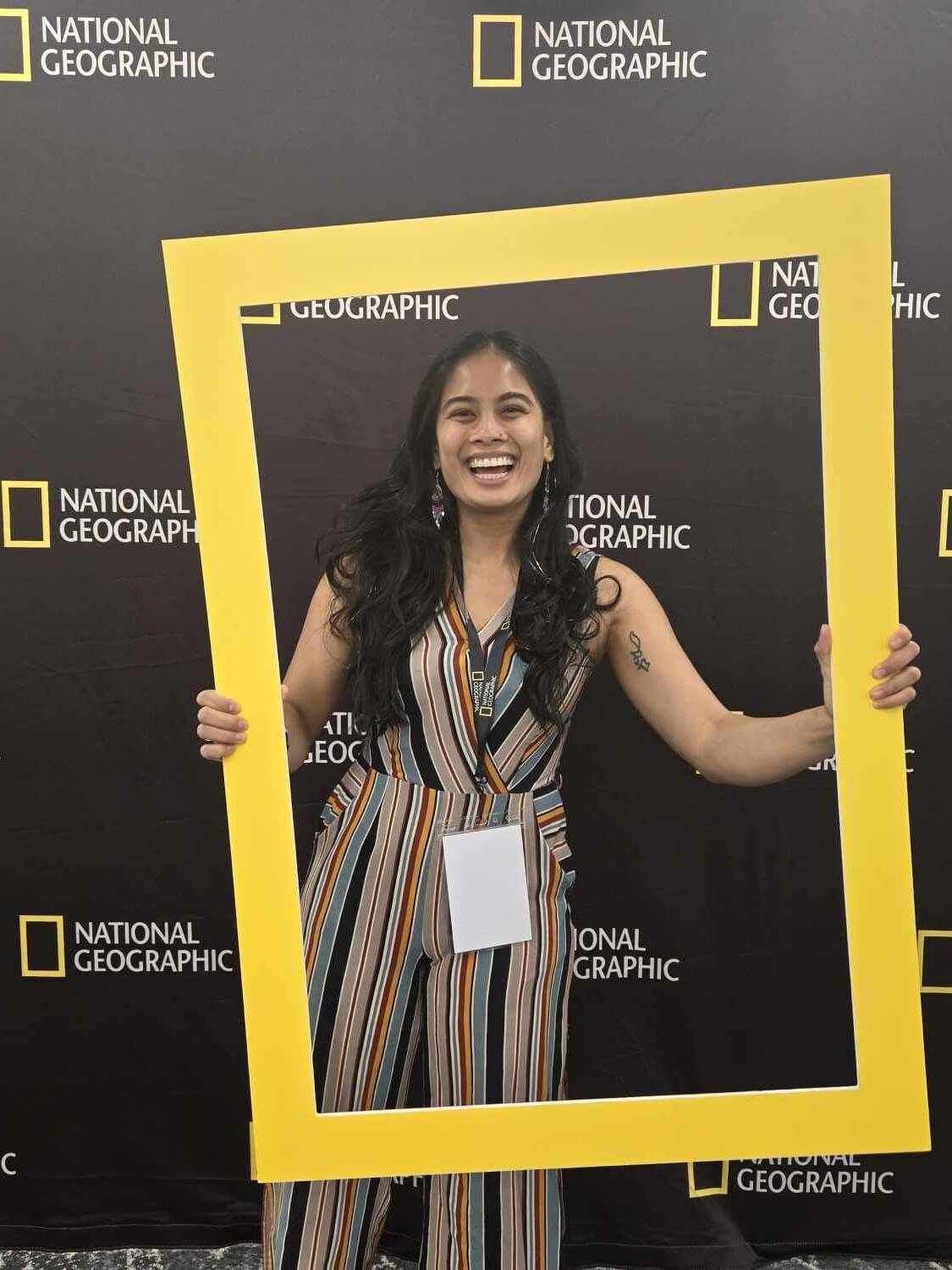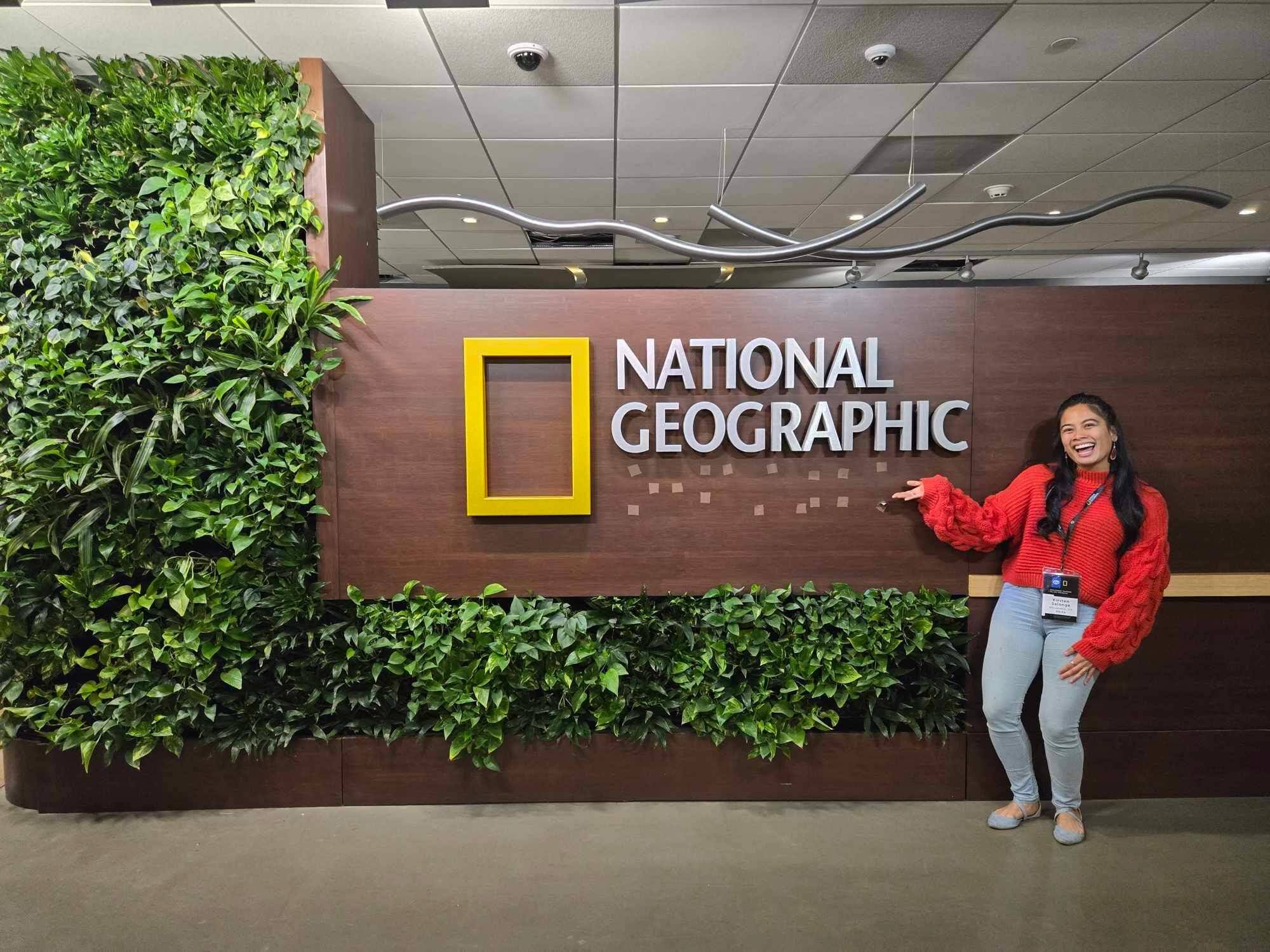KBS experience inspires Yager teaching award winner
Article Highlights
- Kirsten Salonga is one of six full-time K-12 science teachers in the nation to receive the Robert E. Yager Exemplary Teaching Award for exemplary use of innovation and excellence in their classrooms.
- Salonga, who works at Justice High School in Virginia, participated in a research experience for teachers at Michigan State University’s W.K. Kellogg Biological Station, which she said has helped shape her approach to teaching.
- That approach, which reflects Salonga’s passion for science and experimentation, is helping inspire students in Justice High’s English for Speakers of Other Languages program to think critically and engage more fully with the concepts they’re learning.
When Kirsten Salonga returns to MSU’s W.K. Kellogg Biological Station, or KBS, this summer, she’ll be bringing the prestige of the Robert E. Yager Exemplary Teaching Award from the National Science Teaching Association with her.
Salonga, an educator at Justice High School in Falls Church, Virginia, is one of six full-time K-12 science teachers in the nation to receive the Yager teaching award for exemplary use of innovation and excellence in their classrooms. She said the time she’s already spent at KBS — an off-campus site for field experimental research in ecology and evolution — has helped shape her approach to teaching, which reflects her passion for science and experimentation.

For example, she uses balloons as props to illustrate cell respiration. She’s prepared a targeted classroom activity known as a “Data Nugget,” which is shared for free through another program developed at KBS. She even won an Educate Fairfax Teacher Grant that enabled students to experiment with hydroponics to learn about photosynthesis.
“I feel like a lot of science teachers, we research projects in college,” said Salonga, a biology and environmental science teacher in Justice’s English for Speakers of Other Languages, or ESOL, program. “Then, once we get out of college, the focus shifts to pedagogy or mostly the things that focus solely on teaching.”
While in college, Salonga performed research in ecology and evolutionary biology with support from the National Science Foundation’s Research Experiences for Undergraduates, or REU, program. After graduating, she discovered similar NSF-funded Research Experiences for Teachers, or RETs — though, not as many.
“I was ecstatic to discover this RET at MSU’s Kellogg Biological Station because of the specific focus it has on evolutionary biology,” she said. “It was so refreshing to come to KBS and really delve into experiments that are content-specific. The lab itself is amazing and the people are phenomenal.”
“I’ve had a number of teachers in the lab over the years funded by the NSF RET program,” said Jeffrey Conner, an MSU professor in the https://plantbiology.natsci.msu.edu/ based at KBS. “They have all been good, but Kirsten is super engaged in the science, more than most.”
Science in action
Like most science teachers, Salonga is teaching her students how nature works. But, by immersing herself in research, she’s also in a unique position to share how science works.
Her students experience firsthand that building knowledge through experiments is a process of trial and error, of rethinking what you may have believed initially.
“The misconception is that they sometimes think, ‘Oh, my experiment didn’t show that my hypothesis was true. It’s a bad experiment,’” Salonga said. “No. That’s still data and your experiment is fine. Your hypothesis is just supported or not supported.”
“We’re good at drawing conclusions based on our biases or our preconceived notions,” Conner said. “What she’s really doing is teaching her students to think like scientists by drawing conclusions based on evidence.”
It’s this part of Salonga’s approach that really stands out to Conner.
“I think that’s remarkable,” he said. “That’s what our democracy really needs right now.”

Making it even more impressive is the fact that she’s imparting this wisdom to ESOL students, who face challenges beyond the content itself, such as learning a new language, Conner added.
There are a lot of moving parts in an ESOL science classroom, but Salonga works to simplify that by scaffolding or building on students’ prior knowledge — both in terms of the English and the content they already know.
Salonga attempts to make her presentations as visual as possible. She presents directions using deliberate, accessible vocabulary in English, but assigns students to groups where they can discuss the experiments in their native language.
The experiments are structured, but they also give students choices in terms of the variables they decide to use. Students must form a hypothesis based on the variables they change.
“I’ve found that if you give students the responsibility, they usually run with it,” Salonga said.
For example, as the recipient of an Educate Fairfax Teacher Grant, she implemented “Hydroponics in Action!,” which encouraged students to create their own models of photosynthesis while participating in project-based learning.
Students grew lettuce with hydroponics kits and, over time, they changed variables such as the height and color of the lights.
But the students’ engagement went beyond learning the effects of these variables. They were actively competing to see whose lettuce grew the tallest. They created poster projects to show how they would advertise their hydroponics businesses. And they got to take their hydroponic lettuce home and share it with their families. The lettuce, Salonga said, was superior to store-bought varieties.
In addition to the Yager award, Salonga was selected to be among 35 Grosvenor Teacher Fellows by National Geographic Society and Lindblad Expeditions to participate on a voyage exploring Alaska’s coastal wilderness this summer.
But she’ll be back at KBS, as well, joining a group of 10 undergraduate and graduate students, technicians and a postdoctoral fellow. They’ll also welcome a new teacher who will be peer-mentored by Salonga as part of the RET program.
“Getting students enthusiastic about science through experimentation is probably the best thing that I’ve done in my career so far,” Salonga said. “KBS has really helped with that.”
- Categories: